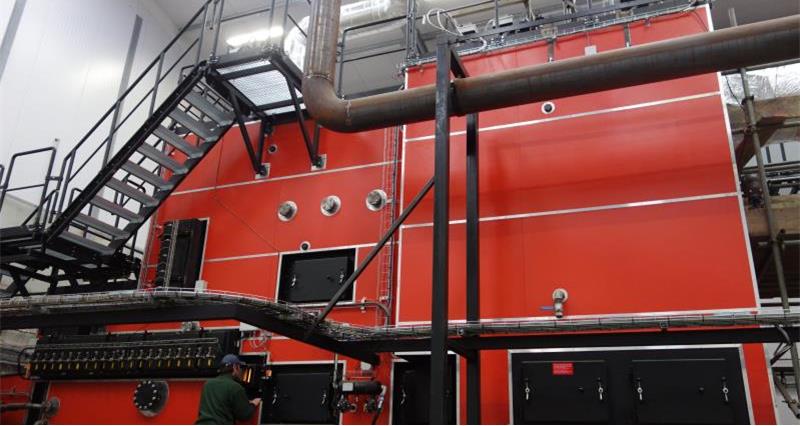BEIS (previously DECC) officials believed they were "closing a loophole" in the existing RHI rules for biomass-CHP plants, adding a new requirement from 1 August to achieve a minimum heat conversion efficiency to electricity of 20% in order to fully qualify for the higher biomass-CHP tariff for all eligible heat use.
We strongly contested these regulatory changes because of the manner in which they were applied, leaving no opportunity for heavily committed projects to complete commissioning and, therefore, severely disadvantaging these investments.
The changes also appeared to discourage low-carbon innovation such as the addition of Organic Rankine Cycle and other small CHP systems to biomass heating for livestock housing and horticulture, where the optimum balance of electricity and heat may be demonstrably less than 20%.
The matter was raised with Defra Secretary of State Andrea Leadsom and also the Energy Minister Baroness Neville-Rolfe, as well as being the subject of an Early Day Motion signed by prominent MPs including Jeremy Corbyn.
This week, Industry and Energy Minister Jesse Norman MP announced that amending legislation on biomass-CHP will be introduced “as soon as is practicable”.
The 20% 'power efficiency' requirement for a biomass CHP plant will be reduced to 10% for a transitional period until 31st March 2017 (i.e. plants with an efficiency of 10% or above will continue to receive the full biomass-CHP tariff), while those with a power efficiency of below 10% will see a proportionate reduction in the level of heat receiving the biomass-CHP tariff.
However, the NFU recognises that this concession does not necessarily resolve the problem for our members with biomass-CHP plants with power efficiencies of less than 10%.
NFU comment:
In essence, the government has conceded that it should have consulted with those businesses impacted by the proposed change, and now intends to introduce a ‘grace period’ to enable installers and their customers to adjust.
We are
This important win for the NFU and its allies demonstrates the value to our members of the NFU’s policy work, in which we have consistently supported a joint campaign to petition government over its failure to follow the appropriate process in bringing about legislative change.
